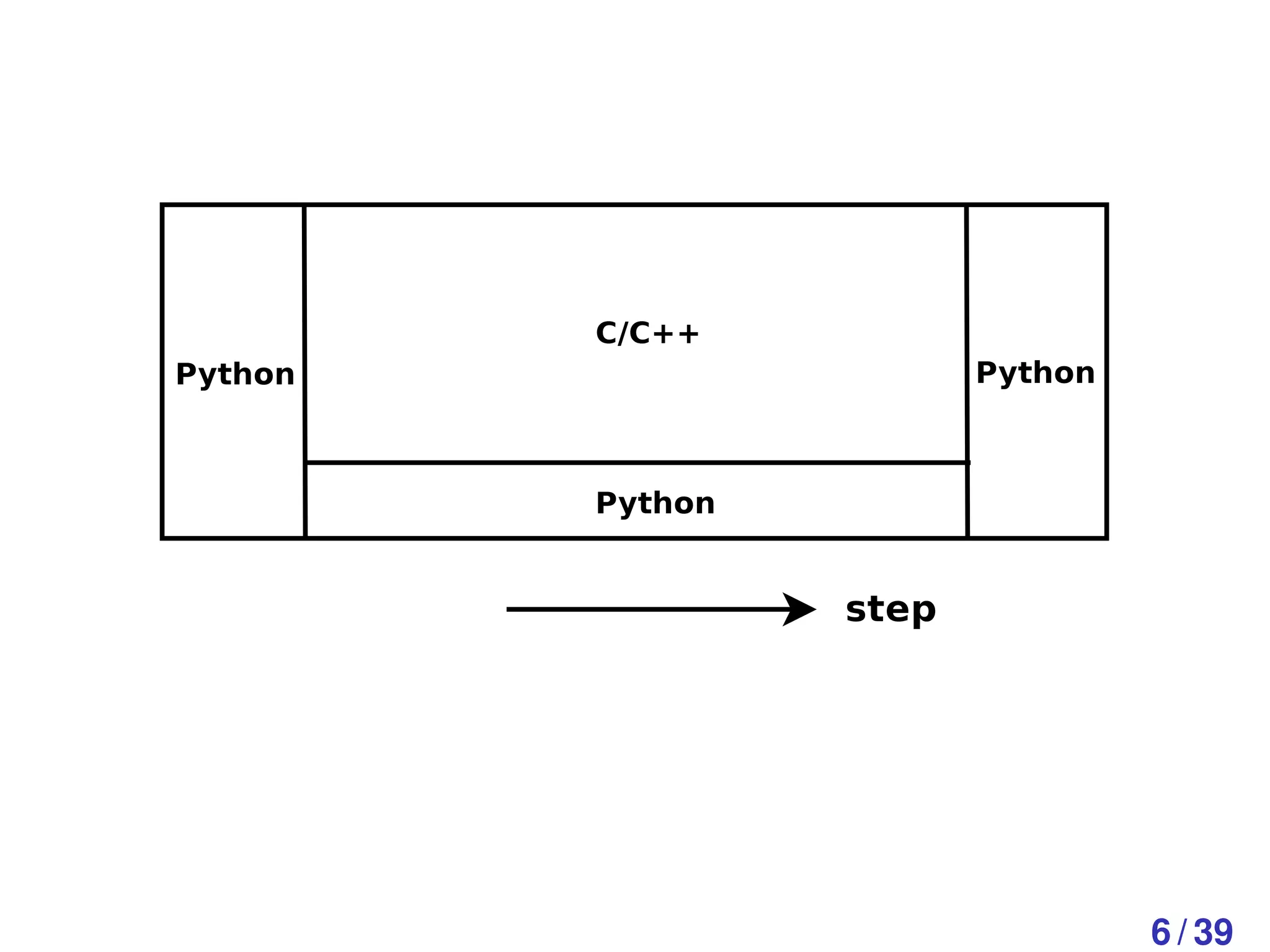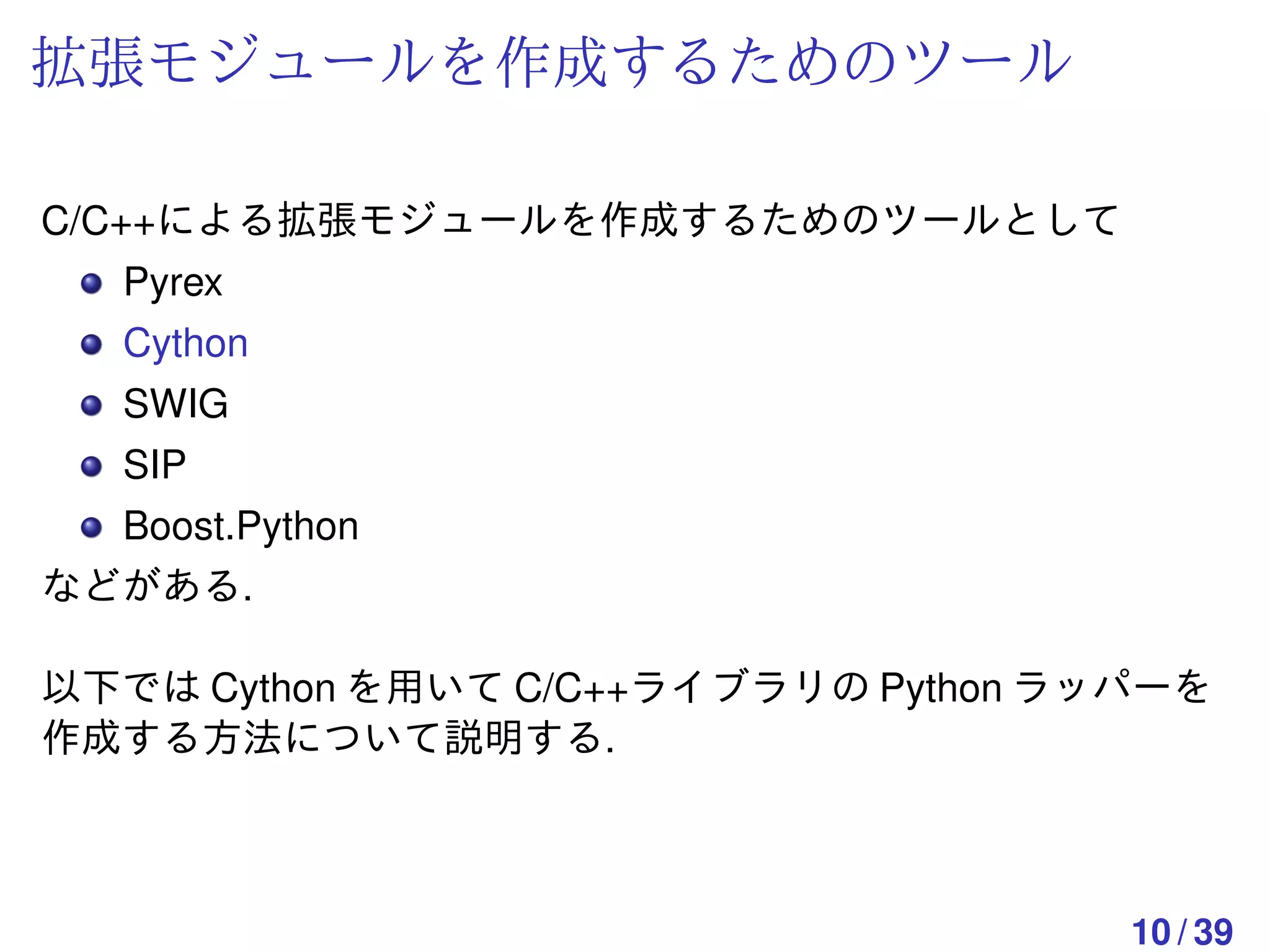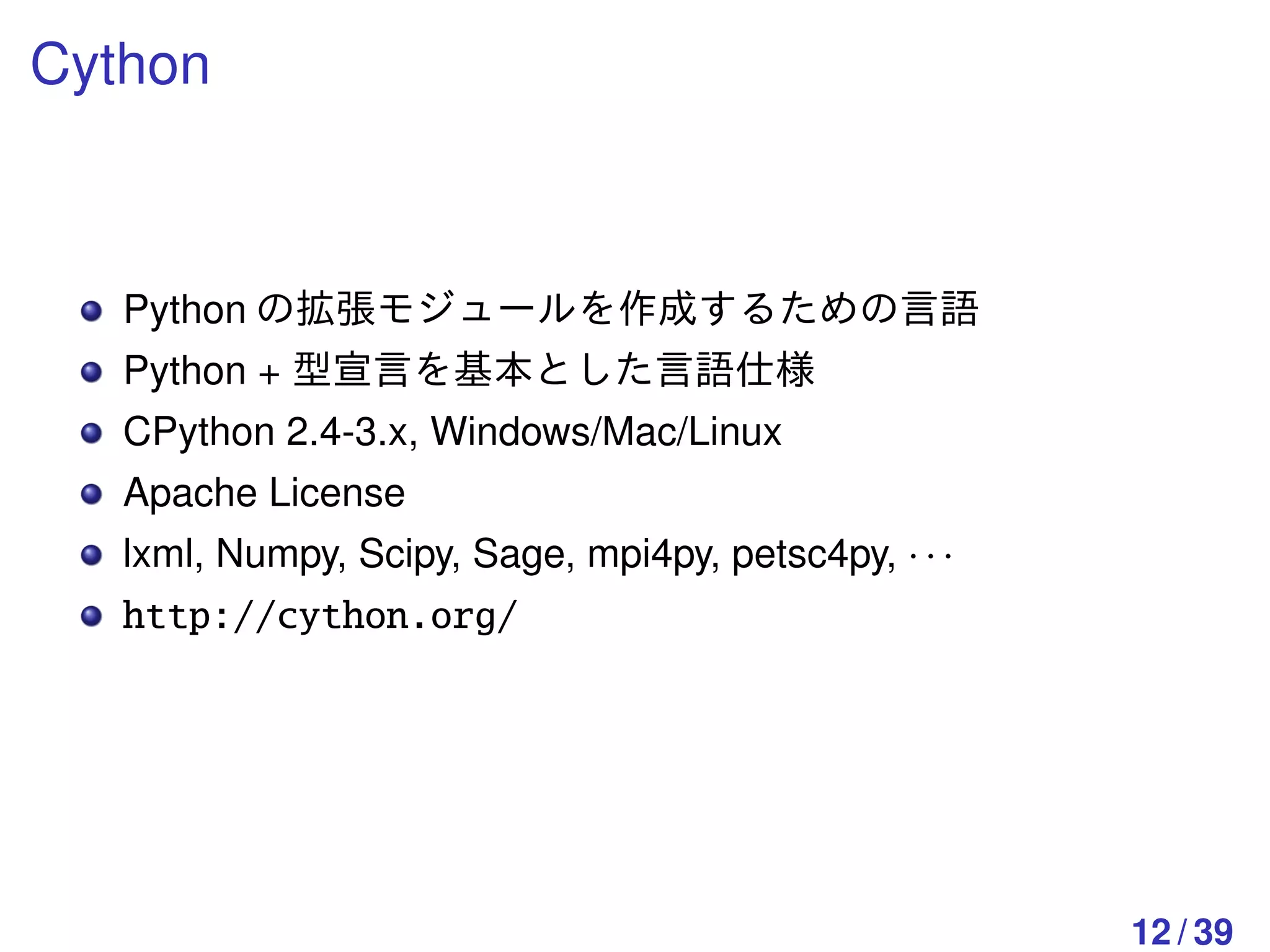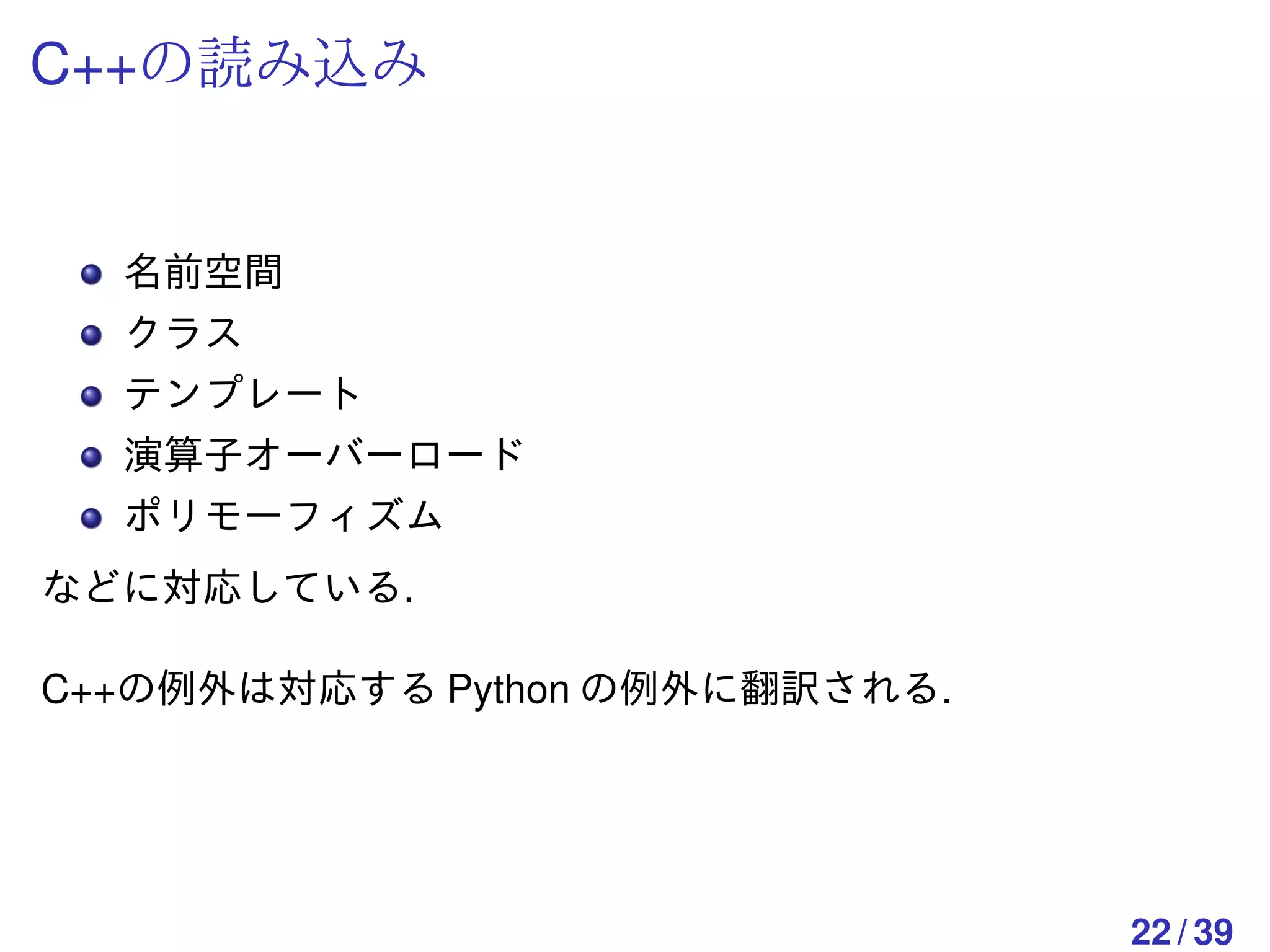Recommended
PDF
從開源軟體的角度來聊聊資安應用 [2023/06/27] @資安五四三
PDF
CXR-ACGAN: Auxiliary Classifier GAN for Conditional Generation of Chest X-Ray...
PPTX
Artificial Neural Network | Deep Neural Network Explained | Artificial Neural...
PDF
SQLで身につける!初めてのレコメンド 〜 基礎から応用まで ~
PDF
PDF
Minecraft による強化学習の実践 (MineRL)
PPTX
【機械学習勉強会】画像の翻訳 ”Image-to-Image translation”
PDF
NIP2015読み会「End-To-End Memory Networks」
PDF
PDF
動画像理解のための深層学習アプローチ Deep learning approaches to video understanding
PDF
PDF
物体検出コンペティションOpen Imagesに挑む
PDF
論文紹介:Learning With Neighbor Consistency for Noisy Labels
PDF
ECCV2020 Oral論文 完全読破(1/2)
PDF
PDF
PDF
ロボット「toio」をUnityで自在に制御!「toio SDK for Unity 」の紹介
PDF
Generative adversarial networks
PDF
NeurIPS2021から見るメタ学習の研究動向 - 第83回人工知能セミナー (2022.3.7)「AIトレンド・トップカンファレンス報告会(NeurI...
PDF
Siamese networks.pptx.pdf
PDF
Pythonではじめる OpenAI Gymトレーニング
PDF
ディープラーニング入門 ~ 画像処理・自然言語処理について ~
PDF
SSII2019TS: Shall We GANs? ~GANの基礎から最近の研究まで~
PDF
CS229 Machine Learning Lecture Notes
PDF
文献紹介:Benchmarking Neural Network Robustness to Common Corruptions and Perturb...
PPTX
PredCNN: Predictive Learning with Cascade Convolutions
PDF
PPTX
PPTX
PDF
コンピュータビジョンの最新ソフトウェア開発環境 SSII2015 チュートリアル hayashi
More Related Content
PDF
從開源軟體的角度來聊聊資安應用 [2023/06/27] @資安五四三
PDF
CXR-ACGAN: Auxiliary Classifier GAN for Conditional Generation of Chest X-Ray...
PPTX
Artificial Neural Network | Deep Neural Network Explained | Artificial Neural...
PDF
SQLで身につける!初めてのレコメンド 〜 基礎から応用まで ~
PDF
PDF
Minecraft による強化学習の実践 (MineRL)
PPTX
【機械学習勉強会】画像の翻訳 ”Image-to-Image translation”
PDF
NIP2015読み会「End-To-End Memory Networks」
What's hot
PDF
PDF
動画像理解のための深層学習アプローチ Deep learning approaches to video understanding
PDF
PDF
物体検出コンペティションOpen Imagesに挑む
PDF
論文紹介:Learning With Neighbor Consistency for Noisy Labels
PDF
ECCV2020 Oral論文 完全読破(1/2)
PDF
PDF
PDF
ロボット「toio」をUnityで自在に制御!「toio SDK for Unity 」の紹介
PDF
Generative adversarial networks
PDF
NeurIPS2021から見るメタ学習の研究動向 - 第83回人工知能セミナー (2022.3.7)「AIトレンド・トップカンファレンス報告会(NeurI...
PDF
Siamese networks.pptx.pdf
PDF
Pythonではじめる OpenAI Gymトレーニング
PDF
ディープラーニング入門 ~ 画像処理・自然言語処理について ~
PDF
SSII2019TS: Shall We GANs? ~GANの基礎から最近の研究まで~
PDF
CS229 Machine Learning Lecture Notes
PDF
文献紹介:Benchmarking Neural Network Robustness to Common Corruptions and Perturb...
PPTX
PredCNN: Predictive Learning with Cascade Convolutions
PDF
PPTX
Viewers also liked
PPTX
PDF
コンピュータビジョンの最新ソフトウェア開発環境 SSII2015 チュートリアル hayashi
PDF
PPTX
FINAL FANTASY Record Keeperを支えたGolang
PDF
PDF
PDF
ヒカルのGo 資料 Webアプリケーションの作り方
PDF
PDF
めんどくさくない Scala #kwkni_scala
PPTX
PDF
PPT
PDF
PDF
Pythonによるwebアプリケーション入門 - Django編-
KEY
PDF
Scala 初めての人が Heroku で Web アプリを公開するまで
PDF
PDF
PPTX
PPTX
Scala初心者がPlay/ScalaでロックなWebアプリを作ったお話
Similar to Wrapping a C++ library with Cython
PDF
PDF
サイバーエージェントにおけるMLOpsに関する取り組み at PyDataTokyo 23
PDF
Pythonの処理系はどのように実装され,どのように動いているのか? 我々はその実態を調査すべくアマゾンへと飛んだ.
PDF
次世代言語 Python による PyPy を使った次世代の処理系開発
PDF
PPTX
PPTX
KEY
PDF
Introduction to Numpy (and Python) [JPN]
PDF
Pyconjp2014_implementations
PDF
「Python言語」はじめの一歩 / First step of Python / 2016 Jan 12
PDF
ODP
PDF
PPT
Python languageupdate (2004)
PDF
PDF
PDF
LLdeade Python Language Update
KEY
Hello World Python featuring GAE
PDF
Wrapping a C++ library with Cython 1. 2. 概要
Cython を用いた C/C++ライブラリの Python ラッパー作成
Python/C API
の初歩について説明する.
2 / 39
3. Outline
1. Introduction
2. Cython
3. Python/C API
4. Summary
3 / 39
4. 5. 動機
Python と C/C++の両方の長所を活かしたい
C/C++ 実行速度の速さ
データ構造, 数値計算ライブラリが揃っている
→ 計算量が支配的な箇所に使う
Python 読み書きしやすさ, 柔軟性, 拡張性, ポータビリティ
利便性の高いライブラリが揃っている
→ その他のすべての箇所に使う
データ収集, 前処理
コマンドライン, GUI アプリ, ウェブアプリ
設定ファイル, ジョブ管理, ログ管理
テスト, 可視化, ドキュメンテーション, · · ·
⇒ Python から C/C++を呼び出せればよい
5 / 39
6. 7. Python/C API
Python/C API を用いて Python の拡張モジュールを作成することに
より以下が可能となる.
新しいオブジェクトの追加
C/C++の呼び出し
http://docs.python.jp/2/c-api/index.html
http://docs.python.jp/2/extending/extending.html
7 / 39
8. say.c
#include <Python.h>
static PyObject* say_hello(PyObject* self, PyObject* args) {
const char* name;
if (!PyArg_ParseTuple(args, "s", &name))
return NULL;
printf("Hello %s!n", name);
Py_RETURN_NONE;
}
...
setup.py
setup(name="say", ext_modules=[
Extension("say", ["say.c"])
])
8 / 39
9. $ python setup.py build_ext --inplace
$ python
>>> import say
Python の内部構造についての知識が必要
メモリ管理, 例外処理などが面倒
コード量が多い
⇒ 拡張モジュールを作成するためのツールを使う
9 / 39
10. 11. 12. Cython
Python の拡張モジュールを作成するための言語
Python + 型宣言を基本とした言語仕様
CPython 2.4-3.x, Windows/Mac/Linux
Apache License
lxml, Numpy, Scipy, Sage, mpi4py, petsc4py, · · ·
http://cython.org/
12 / 39
13. 拡張モジュールの作成方法
1. pyx ファイルを作成する
2. Cython を用いて pyx ファイルを c/cpp ファイルに変換する
3. c/cpp ファイルをコンパイルする
生成された so ファイルは Python から直接インポートできる.
setup(ext_modules=cythonize("foo.pyx"))
$ python setup.py build_ext --inplace
$ python
>>> import foo
13 / 39
14. Cython では Python のソースコードが (ほぼ) そのまま使える
さらに以下のような言語仕様が加えられている.
型宣言
C/C++の読み込み
条件付きコンパイル
コンパイラディレクティブ
etc.
14 / 39
15. 型宣言
cdef int i, j[10]
cdef float f, *g
cdef struct Rectangle:
float width
float height
cdef enum State:
open = 1
closed = 2
cdef object pyobj
ctypedef unsigned long uint64_t
from libc.stdint cimport int64_t
15 / 39
16. 型変換
基本的な数値型と文字列型については, Python オブジェクトと C
変数が自動変換される.
cdef bytes py_byte_string
cdef unicode py_unicode_string
cdef char* c_string
py_byte_string = <bytes> c_string
py_byte_string = c_string
py_byte_string = c_string[:length]
c_string = py_byte_string
py_unicode_string = py_byte_string.decode("utf-8")
py_byte_string = py_unicde_string.encode("utf-8")
16 / 39
17. 関数定義
def により定義
引数, 返り値ともに Python オブジェクト
Python から呼び出せる
cdef により定義
引数, 返り値ともに C 変数 (Python オブジェクトも含む)
Python から呼び出せない
def integrate(double a, double b, int N):
# 引数, 返り値は自動的に型変換される
cdef int i
cdef double s, dx
s = 0; dx = (b - a) / N
for i in range(N):
s += f(a + i * dx)
return s * dx
cdef float f(double x) except *:
return 1 / x
17 / 39
18. 拡張型
cdef class Interval:
cdef public float x0, x1
def __init__(self, x0, x1):
self.x0 = x0; self.x1 = x1
@property
def length(self):
return self.x1 - self.x0
def widen(Interval i not None, r):
i.x0 *= r; i.x1 *= r
ビルトイン型, 拡張型を継承できる. 多重継承はできない.
アトリビュートには public, readonly を指定できる
拡張型の値は None を取りうる
拡張型の引数には not None を指定できる
<MyClass?> は型チェック付きキャスト
18 / 39
19. 拡張型の初期化
cinit C レベルの初期化を行う.
必ず一度だけ呼び出される.
この時点では Python オブジェクトとして不完全.
init cinit 以外の初期化を行う.
複数回呼ばれる/1 回も呼ばれない場合もある.
dealloc C レベルの破棄処理.
この時点では Python オブジェクトとして不完全.
基底型の cinit が先に呼び出される.
コンストラクタに渡した引数は cinit , init の両方に渡さ
れる.
19 / 39
20. C 言語とのシンタックスの違い
const は使えない
ヌルポインタは NULL により表す
p->a の代わりに p.a を使う
&x の代わりに cython.address(x) を使う
*p の代わりに p[0] or cython.operator.dereference(p)
を使う
20 / 39
21. C の読み込み
Cython は C のヘッダファイルを読まないため, 以下のような宣言
が必要となる.
cdef extern from "math.h":
double sin(double)
double M_PI
def py_sin(d):
# Python から呼び出し可能
return sin(M_PI / 180.0 * d)
21 / 39
22. C++の読み込み
名前空間
クラス
テンプレート
演算子オーバーロード
ポリモーフィズム
などに対応している.
C++の例外は対応する Python の例外に翻訳される.
22 / 39
23. STL コンテナ
STL コンテナは libcpp 以下から cimport するだけで使える
対応する Python 組み込み型があれば自動変換される
from libcpp.string cimport string
cdef string cpp_string
cdef bytes py_byte_string
cpp_string = <string> py_byte_string
cpp_string = py_byte_string
py_byte_string = cpp_string
23 / 39
24. C++クラスの宣言
pair.pyx
cdef extern from "<utility>" namespace "std":
cdef cppclass pair[T, U]:
T first
U second
pair() nogil except +
pair(pair&) nogil except +
pair(T&, U&) nogil except +
bint operator==(pair&, pair&) nogil
bint operator!=(pair&, pair&) nogil
...
cdef pair[int, char*] *p = new pair[int, char*](1, "One")
setup.py
setup(ext_modules=cythonize("pair.pyx", language="c++"))
24 / 39
25. Python ラッパークラス
cppclass を Python から呼び出すにはラッパークラスが必要.
cdef class PyPair:
cdef pair[int, char*] *thisptr
def __cinit__(self, *args, **kw):
self.thisptr = new pair[int, char*]()
def __init__(self, int i, char* s):
self.thisptr.first = i
self.thisptr.second = s
def __dealloc__(self):
del self.thisptr
@property
def first(self):
return self.thisptr.first
@property
def second(self):
return self.thisptr.second
25 / 39
26. デバッガ
$ python-dbg setup.py build_ext --pyrex-gdb --inplace
$ cygdb
(gdb)
使い方は GDB とほぼ同じ.
ブレークポイントの設定
スタックのインスペクション
ステップ実行
etc.
26 / 39
27. typedness のアノテーション
Cython および C/C++コードを typedness により色分けした HTML
ファイルを生成する.
$ cython foo.pyx -a
http://docs.cython.org/src/quickstart/cythonize.html
27 / 39
28. 29. その他の機能
Numpy との連携
Sage Notebook との連携
コンパイラディレクティブ
条件付きコンパイル
融合型
型つきメモリビュー
並列化
GIL 制御
etc.
詳しくは http://docs.cython.org/
29 / 39
30. 31. Cython により生成された C/C++ファイルを読むには Python/C API
の知識が必要となる. 以下ではその初歩について説明する.
詳しくは http://docs.python.jp/2/extending/index.html
31 / 39
32. すべてのデータはオブジェクト
#define PyObject_HEAD
_PyObject_HEAD_EXTRA /* デバグ用*/
Py_ssize_t ob_refcnt; /* 参照カウンタ */
struct _typeobject *ob_type; /* 型オブジェクト */
typedef struct _object {
PyObject_HEAD
} PyObject;
typedef struct {
PyObject_HEAD
long ob_ival;
} PyIntObject;
PyInt FromLong などで Python オブジェクトを構築
PyInt Check などで型チェ ック
PyInt AsLong などで C 変数を取得
32 / 39
33. 34. Python から呼び出す関数の引数, 返り値は Python オブジェクト
static PyObject *
func(PyObject *self, PyObject *args) {
const char *s;
if (!PyArg_ParseTuple(args, "s", &s))
return NULL;
...
}
typedef PyObject *(*PyCFunction)(PyObject *, PyObject *);
PyErr *で例外処理
if (PyErr_Occurred()) {
if (/* StopIteration だったら */) PyErr_Clear();
else { goto __pyx_error; }
}
34 / 39
35. PyObject Call*で Python オブジェクトの呼び出し
PyObject* PyObject_Call(PyObject *callable,
PyObject *args, PyObject *kw)
args, kw のチェック, 再帰の管理などが行われる
ガベージコレクションは参照カウント法
参照カウントの振る舞い “参照の所有権” により理解される
Py INCREF, Py DECREF で参照カウンタを増減
参照カウンタが 0 になったオブジェクトは破棄される
35 / 39
36. 37. まとめ
Cython を使って C/C++ライブラリの Python ラッパーを
“手軽に” 作ることが出来る
拡張ライブラリの仕組みを把握するには
Python/C API の知識が必要
Cython は
C/C++と Python の両方の長所を活かすための
橋渡しとしての役割を果たす
37 / 39
38. 39.







![say.c
#include <Python.h>
static PyObject* say_hello(PyObject* self, PyObject* args) {
const char* name;
if (!PyArg_ParseTuple(args, "s", &name))
return NULL;
printf("Hello %s!n", name);
Py_RETURN_NONE;
}
...
setup.py
setup(name="say", ext_modules=[
Extension("say", ["say.c"])
])
8 / 39](https://image.slidesharecdn.com/wrapping-a-cpp-library-with-cython-130125185709-phpapp02/75/Wrapping-a-C-library-with-Cython-8-2048.jpg)






![型宣言
cdef int i, j[10]
cdef float f, *g
cdef struct Rectangle:
float width
float height
cdef enum State:
open = 1
closed = 2
cdef object pyobj
ctypedef unsigned long uint64_t
from libc.stdint cimport int64_t
15 / 39](https://image.slidesharecdn.com/wrapping-a-cpp-library-with-cython-130125185709-phpapp02/75/Wrapping-a-C-library-with-Cython-15-2048.jpg)
![型変換
基本的な数値型と文字列型については, Python オブジェクトと C
変数が自動変換される.
cdef bytes py_byte_string
cdef unicode py_unicode_string
cdef char* c_string
py_byte_string = <bytes> c_string
py_byte_string = c_string
py_byte_string = c_string[:length]
c_string = py_byte_string
py_unicode_string = py_byte_string.decode("utf-8")
py_byte_string = py_unicde_string.encode("utf-8")
16 / 39](https://image.slidesharecdn.com/wrapping-a-cpp-library-with-cython-130125185709-phpapp02/75/Wrapping-a-C-library-with-Cython-16-2048.jpg)



![C 言語とのシンタックスの違い
const は使えない
ヌルポインタは NULL により表す
p->a の代わりに p.a を使う
&x の代わりに cython.address(x) を使う
*p の代わりに p[0] or cython.operator.dereference(p)
を使う
20 / 39](https://image.slidesharecdn.com/wrapping-a-cpp-library-with-cython-130125185709-phpapp02/75/Wrapping-a-C-library-with-Cython-20-2048.jpg)



![C++クラスの宣言
pair.pyx
cdef extern from "<utility>" namespace "std":
cdef cppclass pair[T, U]:
T first
U second
pair() nogil except +
pair(pair&) nogil except +
pair(T&, U&) nogil except +
bint operator==(pair&, pair&) nogil
bint operator!=(pair&, pair&) nogil
...
cdef pair[int, char*] *p = new pair[int, char*](1, "One")
setup.py
setup(ext_modules=cythonize("pair.pyx", language="c++"))
24 / 39](https://image.slidesharecdn.com/wrapping-a-cpp-library-with-cython-130125185709-phpapp02/75/Wrapping-a-C-library-with-Cython-24-2048.jpg)
![Python ラッパークラス
cppclass を Python から呼び出すにはラッパークラスが必要.
cdef class PyPair:
cdef pair[int, char*] *thisptr
def __cinit__(self, *args, **kw):
self.thisptr = new pair[int, char*]()
def __init__(self, int i, char* s):
self.thisptr.first = i
self.thisptr.second = s
def __dealloc__(self):
del self.thisptr
@property
def first(self):
return self.thisptr.first
@property
def second(self):
return self.thisptr.second
25 / 39](https://image.slidesharecdn.com/wrapping-a-cpp-library-with-cython-130125185709-phpapp02/75/Wrapping-a-C-library-with-Cython-25-2048.jpg)












![References
[1] http://docs.python.jp
[2] http://docs.cython.org/
[3] Cython ユーザメーリングリスト
[4] D. S. Seljebotn, Fast numerical computations with Cython,
Proceedings of the 8th Python in Science Conference, 2009.
38 / 39](https://image.slidesharecdn.com/wrapping-a-cpp-library-with-cython-130125185709-phpapp02/75/Wrapping-a-C-library-with-Cython-38-2048.jpg)
